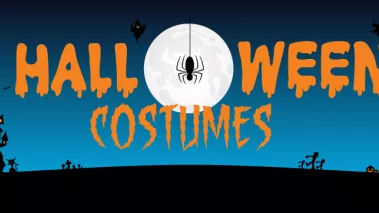Table of Contents
Halloween costumes on college campuses

Students and faculty have faced investigation and punishment for their choice of Halloween costumes — even on campuses that promise free expression.
Here are some basic things students should know:
Halloween costumes are protected speech. Even offensive ones.
At public colleges bound by the First Amendment and private schools that promise free expression, Halloween costumes are a form of protected expression. You cannot be investigated or punished for your choice of costume, even if it offends someone else.
Courts have held that offensive — even racist — costumes are expressive conduct protected under the First Amendment. In 1993, the U.S. Court of Appeals for the Fourth Circuit held in Iota Xi Chapter of Sigma Chi Fraternity v. George Mason University that a university could not punish a fraternity for an “ugly woman” contest that featured a performer wearing blackface. The court ruled that a university cannot punish speech based solely on its perceived offensiveness, and that even a “boorish message” or “crude humor” is protected by the First Amendment.
Whether your school is public or private matters.
Free speech rights on campus differ depending on your school’s status as a public or private institution.
Public colleges and universities are government entities required to honor the free speech rights guaranteed to students and faculty under the First Amendment.
Even though private schools are not bound by the First Amendment, you might also have the right to choose your costume if you attend a private school that promises free expression. Private colleges and universities that promise students and faculty the right to free expression are morally obligated — and sometimes legally obligated — to keep those promises.
Halloween-related policies at schools that promise free speech cannot contradict other speech-related policies, insofar as they might overregulate student or faculty expression.
If your private institution is a “warning school” — that is, if it explicitly places other values over freedom of expression in its policies — it may more heavily regulate expressive activity like wearing Halloween costumes.
Halloween costume guidelines often fail to specify what’s off limits.
Most college guidelines regarding Halloween costumes are vaguely worded.
Often these bans or recommendations warn against costumes that are “offensive,” evince “cultural appropriation,” or “mock” or “demean” others. But because these terms are not defined and have no legal definition, students cannot know for sure what’s off limits.
Halloween costume guidelines don’t say whether they’re just recommendations or formal rules.
Colleges and universities have their own expressive rights, and even public colleges are within their rights to suggest that students mindfully select their Halloween costumes. But at schools that promise free expression, Halloween costume guidelines must not contradict those promises or even raise questions as to whether they do.
Yet at some institutions that promise free speech, their Halloween costume guidelines explicitly threaten punishment for offensive costumes. Others schools release ambiguously-worded memos or reminders, leaving students wondering whether their costume choice will result in consequences greater than criticism.
The University of Oklahoma’s 2018 Halloween costume memo is a prime example of how administrators create costume confusion. The document, on official letterhead, purports to remind students that “that Halloween costumes should be designed respectfully.” It continues:
While we admire the creativity that goes into many people’s costume choices, be aware that cultural appropriation of identities can be offensive. Please select your costumes and depictions in a way that does not demean, dehumanize or diminish anyone’s identity or culture.
A safe guide regarding this - if in doubt whether your actions or your outfits are okay, they probably are not. If you are still unsure, the office of University Community can provide some guidance.
While OU falls short of threatening official punishment, the university’s statement that students’ selection of non-offensive costume choices is something they “should” do, and that non-compliance is not “okay,” may create ambiguity.
Because students may self-censor rather than risk punishment, these unclear guidelines may chill campus speech.
You can see additional examples of how different colleges and universities police campus Halloween costumes here, here and here.
If you face investigation or punishment for your Halloween costume, tell FIRE.
If you’re being punished for your protected expression, FIRE wants to know.
Visit our website at thefire.org and submit a case.
Recent Articles
Get the latest free speech news and analysis from FIRE.

FIRE's 2025 impact in court, on campus, and in our culture

The trouble with banning Fizz

VICTORY: Court vindicates professor investigated for parodying university’s ‘land acknowledgment’ on syllabus
